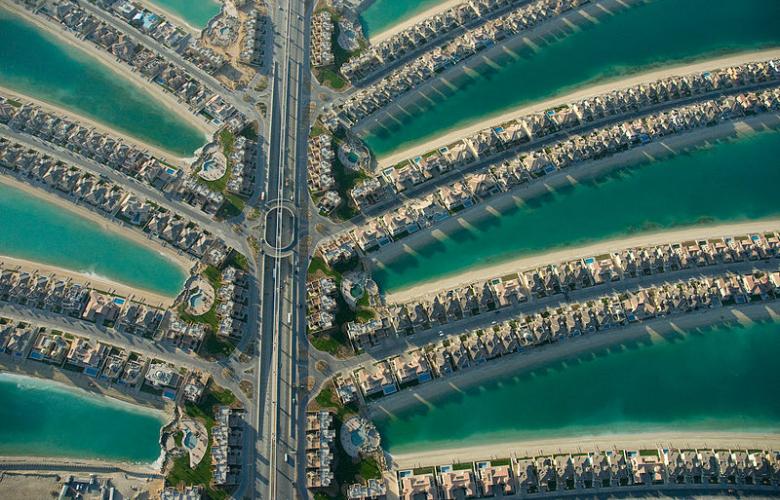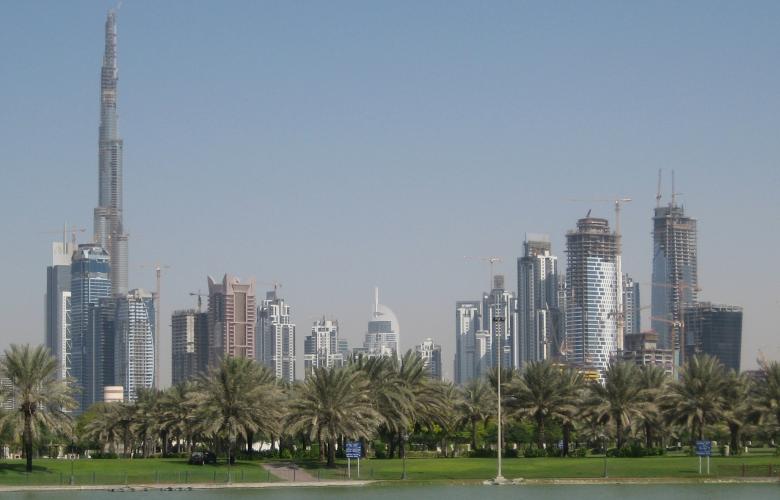Core Savills finds Dubai leading region in real estate sustainability
Core Savills finds Dubai leading region in real estate sustainability
Marking an important step for sustainability in the region, Dubai has over 550 projects currently undertaking sustainability certification.
Despite a restrictive climate and a relatively young real estate market, The United Arab Emirates have become the flag bearers of sustainability within the region, says Core Savills in its ‘Green Report: Sustainability and Wellness in Dubai’. It was found that Dubai has the highest ratio of projects being certified across global cities, with 81% of in-progress projects, while Dubai ranks 3rd amongst global cities with the highest number of green buildings under both LEED and BREEAM systems.
LEED (Leadership in Energy and Environment Design) is a rating system devised by the United States Green Building Council is the most widely used third-party verification for green buildings. BREEAM, the Building Research Establishment’s Environmental Assessment Method was established in 1990 and is the world’s first sustainability assessment method for buildings and is also widely used.
It was also found that the sustainability achievements in commercial market were not mirrored in residential sector, with the commercial property sector taking bigger strides toward a green strategy than the residential property market, in the backdrop of maturing yet challenging market conditions. The residential market’s lag in green initiatives is due to factors largely favoured by investors and end-users
Commercial sector takes the LEED in sustainability
The UAE’s steps taken toward building a green city undeniably demonstrate the significant factor that sustainability represents for the country. With 81% of developments under certification in Dubai, the highest ratio on a global scale, developers are increasingly filling the gap created by the demand for LEED-certified Grade A buildings which still largely outstrips supply. As a global hub recognized for its strategic location within the region, Dubai continues to attract blue chip tenants who incorporate sustainability within their corporate governance.
According to the report, “despite buildings being built as per LEED guidelines, headline rents are still at par with other non-certified Grade A stock. Firstly, this can be explained by the fact that new developments are launching their initial phases at an attractive entry price point, in an effort to achieve critical mass and pave the way for future phases, where higher rentals may be justifiable. Secondly, these green developments still compete with established and centrally located non-certified Grade A stock. While global corporate occupiers do value sustainability, a larger section of demand is yet to quantify environmental and operational benefits over rental costs.”
Furthermore, the research highlights: “With the market progressively moving towards prime office stock and LEED certification expected to become a norm rather than a feature, a gap in rental rates is predicted to start forming in Grade A stock between certified and non-certified products.”
Residential landscape lags behind in green homes
In contrast to the office market in Dubai, the residential segment lags behind on sustainability issues. Core Savills’ The Green Report identifies another gap, which lies within the residential market between older and new developments, with a noticeable quality difference in build and finishing.
David Godchaux, CEO of Core Savills explained, “this disparity represents a pocket of opportunity in the market for landlords to upgrade their assets to higher standards, by investing in refurbishments over and above their initial acquisition cost. However, there is a ceiling to how much a unit can be upgraded within a given location”. He adds that owners risk reaching a point “where the more they spend on upgrading their unit, the less additional return (rent or price) it will incur.” Landlords tend to upgrade basic quality and finishes first (kitchen, bathroom, floorings), as these factors are better valued by tenants and investors; additional green upgrades often push a unit’s price out of its original market, making it very difficult to sell or lease.
Mr. Godchaux concludes: “Until a large proportion of the market achieves these upgrades and reaches a higher level of uniform build and finishes quality, we do not expect owners to replace basic upgrades with more sophisticated building improvements such as energy efficiency and sustainability.”
About Core (UAE Associate of Savills)
As one of the largest UAE property services firms, Core (UAE Associate of Savills), combines unrivalled local market insight with the international strength provided by over 700 global offices. As a full-service real estate business, working with tenants, landlords, investors and developers of residential and commercial real estate in Dubai and Abu Dhabi, the company provides integrated expertise across all property sectors, including prime real estate, international residential, offices, retail, hotels, industrial and logistics.
To view the full report, visit the Core Savills Green Report below.
See also:
New buildings in Dubai to be rated on green building standards





